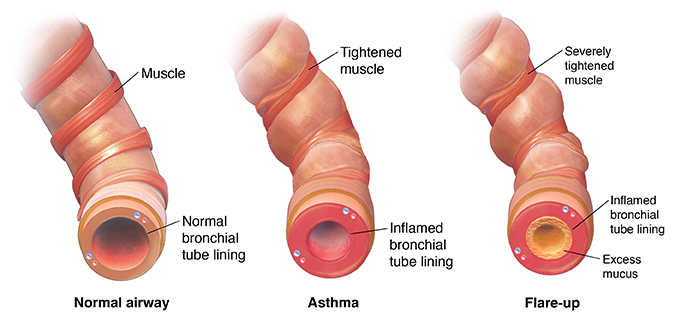What happens during a flare-up?
Children with asthma have severe episodes or flare-ups when the air passages in their lungs become narrower. This makes it harder to breathe. Sensitive airways react to certain things called triggers. Triggers can cause:
-
The lining of the airways (bronchial tubes) to become more inflamed and swollen
-
Tightening of the muscles that surround the airways
-
More mucus production
-
Less air movement through the lungs
Your child may have the following symptoms of a flare-up:
-
Trouble breathing. Your child may start breathing faster than normal. Or they may be using muscles that they normally don't use to breathe. This will make it look like the area under or between the ribs is sucking in or the belly is sticking out (called retractions).
-
Chest tightness
-
Coughing
-
Wheezing or whistling when breathing out (wheezing may not happen with very severe flare-ups)
-
Symptoms that wake your child or keep them from sleeping
-
Trouble walking or talking
Make sure you know what to do if your child's symptoms get worse. Always have their asthma medicines and Asthma Action Plan available to use in case of a flare-up. If your child doesn't get treatment right away during a flare-up, they could stop breathing or even die. Your child's healthcare team can teach you how to respond to these flare-ups and keep your child as healthy as possible.
Featured in



